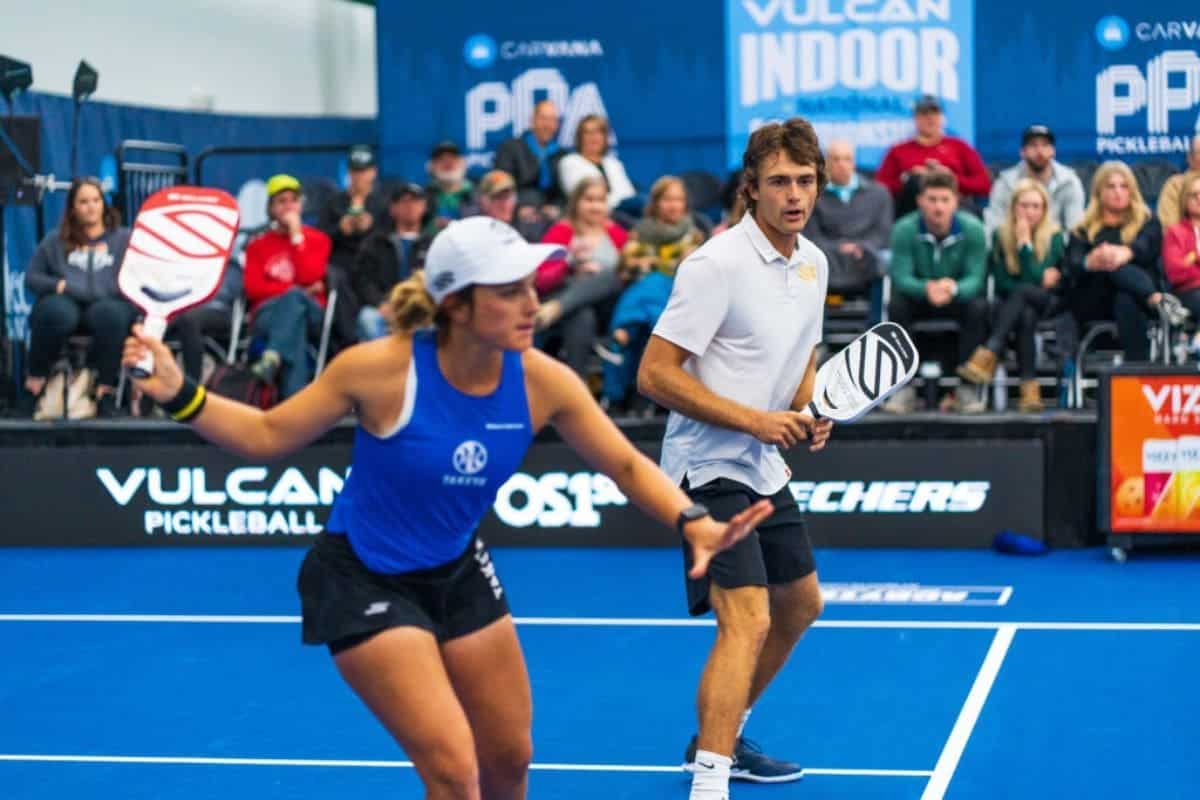Stacking the Formation
One of the most effective tactics to counter being targeted is stacking. This strategy involves positioning one player predominantly on one side of the court—left or right—while the partner covers the other. The advantage of stacking lies in its ability to balance the court coverage, especially in the center, which is often a focal point for opponents aiming to exploit vulnerabilities.
For stacking to be effective, clear communication and understanding between partners are essential. Pre-established hand signals or verbal cues can ensure seamless court coverage and minimize confusion. Additionally, allowing one player to cheat slightly toward the other’s side can disrupt opponents’ targeting strategies, making it more challenging for them to focus on a single player.
Leveraging Personal Strengths
Capitalizing on individual strengths is another key aspect of handling being targeted. Players should use their skills to shift the dynamics of the game.
Hitting deep returns forces opponents to reposition, reducing their ability to target a specific player. Incorporating a mix of shots—such as topspin drops, resets, or hybrid shots—keeps opponents off-balance and prevents them from settling into a predictable pattern. This approach not only protects the targeted player but also contributes to the overall team strategy.

Effective Communication and Coordination
Pre-game strategy meetings are crucial. Partners should discuss game plans, including when to employ stacking and how to manage targeted shots. Establishing clear signals for actions like poaching or covering the middle can streamline responses to opponents’ tactics, enhancing team efficiency and effectiveness.
Focus on Resets and Dinks
Practicing solid reset shots can neutralize opponents’ aggressive plays, keeping the ball low and avoiding easy put-aways. Additionally, using dinks strategically forces opponents to engage in extended rallies, often leading to mistakes or advantageous positions for the partner. This approach shifts some of the pressure away from the targeted player.
Exploiting Opponent Weaknesses
Players should be observant of opponents’ weaknesses and adapt their strategy to exploit these gaps. Targeting a less skilled opponent or working with a partner to capitalize on their vulnerabilities can shift the focus away from the targeted player, creating opportunities for both offensive and defensive plays.

Maintaining a Positive Mindset and Adapting
Maintaining composure under pressure is essential. Frustration can lead to mistakes and disrupt game flow. A positive mindset, coupled with the ability to adapt strategies as the game evolves, is crucial for responding effectively to opponents’ tactics and maintaining overall performance.
By employing these strategies, players can effectively handle being targeted in mixed-skill and gender pickleball leagues. The combination of tactical positioning, leveraging personal strengths, and maintaining effective communication and coordination enhances both individual and team performance.
News In Brief: Handling Targeting in Pickleball
In mixed-skill and gender pickleball leagues, handling the pressure of being targeted requires strategic adjustments. Employing stacking—where one player covers one side and the partner the other—can balance court coverage and disrupt opponents’ targeting. Leveraging personal strengths, such as hitting deep shots and using varied techniques, can shift the dynamics of the game. Effective communication and coordination between partners are vital for executing strategies like stacking and managing targeted shots. Focus on solid reset and dink shots to control the game and force extended rallies. Identifying and exploiting opponents’ weaknesses can also shift the focus away from the targeted player. Maintaining a positive mindset and adaptability are crucial for overcoming pressure and enhancing performance.
ALSO READ: Draw Your Partner Pickleball Tournament Results: Clinton Tourney

